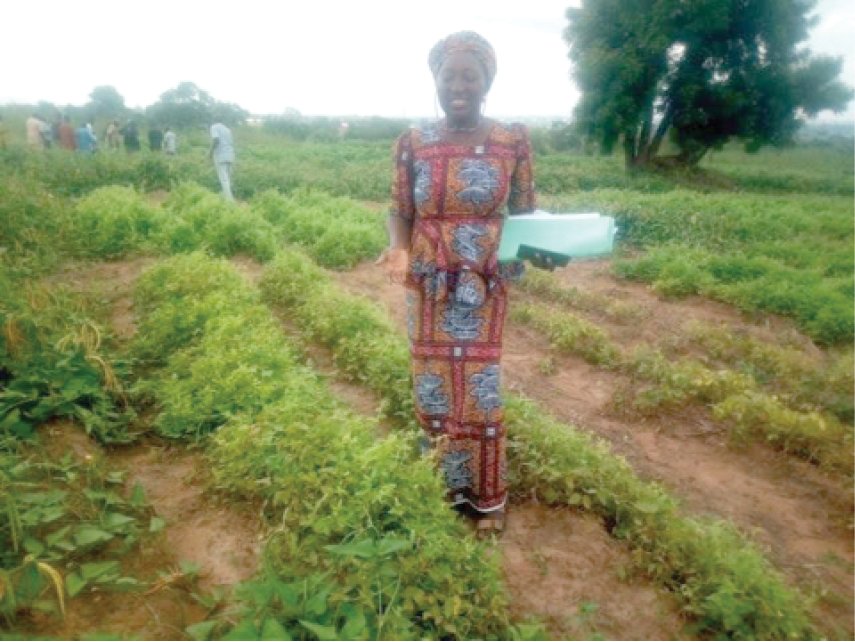Climate change: Scientists research stress-tolerant legumes
As the effect of climate change on arable lands continues to disrupt food quality and availability in various ways, development of crops that can yield under uncertain and extreme climatic and soil conditions would play a key role in improving food security. To this end, Stress Tolerance Orphan Legume (STOL) crops such as mung bean, […]

Dr Ochigbo in the orphan legume field
As the effect of climate change on arable lands continues to disrupt food quality and availability in various ways, development of crops that can yield under uncertain and extreme climatic and soil conditions would play a key role in improving food security.
To this end, Stress Tolerance Orphan Legume (STOL) crops such as mung bean, moth beans, bambara nut, dolichols beans, and horse gram are significant food sources, but they are understudied.
Currently, four species of orphan legume cowpea, which may provide families with food security of high nutritional value and boost their economies are being investigated by scientists at the Federal University of Agriculture, Makurdi (FUAM) in Benue State.
The study is in partnership with the Indian Council of Agricultural Research, with financial support from the Kirkhouse Trust to improve the productivity of the crops for use in dry land systems across sub-Saharan Africa and India.
Daily Trust on Sunday gathered that some of these legumes were planted by farmers, but they are no longer in existence due to low yields. So the institution is undertaking research to improve the productivity of the crops and attract farmers to plant them again and make a fortune from them.
Some farmers and top officials of the institution, including the vice chancellor, Prof Richard Kimbir, were conducted round the field, where the orphan legumes have been planted. Scientists are conducting research to showcase the potentials of the crop.
Members of the research team, Dr Abigail Ochigbo and Dr Olalekan, expressed confidence that the plants were adapting to the Nigerian soil.
According to Ochigbo, “The orphans are doing well, and we will start harvesting them soon. We are trying them for multiplication. We will work on the sizes. We will cross them; some of them with our real cowpea.”
The research team explained that the STOLs were the future crops to mitigate the effect of climate change as they are tolerant to environmental stresses.
Expectedly, many farmers within and outside Makurdi expressed confidence in the efforts of the scientists to mitigate climate change on farming.
Some of the farmers who spoke to our correspondent appreciated the performance of the crops in the field and plan to plant them when the season is due.
Terkaa Samuel said that in the next planting season, he would try the seed on the portion of his cowpea farm in a Makurdi village.
The vice chancellor of FUAM, Prof Kimbir, assured farmers that the university had taken proactive steps to collaborate with village heads of communities around the institution to ensure that cases of crop theft would be a thing of the past.
Kimbir, who was visibly impressed, urged scientists not to relent in their efforts, and told farmers that the university would help them with the right information on the best practices that would enhance better yield. He urged them to put in more efforts at cultivating the varieties developed by the university to increase income and improve their livelihoods.
Also, the head of department of the Plant Breeding and Seed System of the university, Dr Peter Kortse, said the Seed Technology Centre of the institution was already producing in a large scale, the cowpea it developed.
